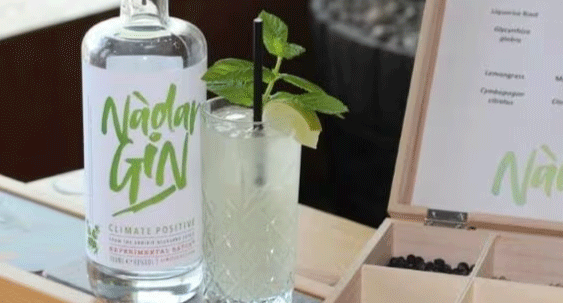In the heart of Scotland’s Angus region, Arbikie Distillery is making waves in the spirits industry by harnessing an unexpected crop: peas. This pioneering distillery has gained international recognition for creating the world’s first climate-positive gin and vodka, utilizing sustainable practices that challenge conventional methods of spirit production.
At the core of Arbikie’s innovation is the commitment to sustainability. Unlike traditional distilleries that focus on carbon neutrality—where emissions are balanced with absorption—Arbikie aims to go a step further by achieving climate positivity. This means they absorb and reduce more carbon dioxide than they emit. The distillery’s unique approach reflects a growing trend among consumers who are increasingly concerned about the environmental impact of their purchases, particularly in the food and beverage sectors.
Peas: A Surprising Ingredient
The decision to use peas as the primary ingredient is both practical and sustainable. Peas are known for their nitrogen-fixing abilities, which enrich the soil and reduce the need for synthetic fertilizers. By choosing this crop, Arbikie not only supports sustainable agriculture but also provides farmers with an alternative cash crop that can contribute positively to the ecosystem.
According to the UK’s Department for Environment, Food & Rural Affairs (DEFRA), legumes like peas can improve soil health and biodiversity. As climate change continues to pose threats to global agriculture, integrating more legumes into crop rotations can help mitigate these challenges. Arbikie’s innovative use of peas exemplifies how distillers can support local farmers while promoting environmentally friendly practices.
A Leader in Sustainable Spirits
At the helm of this innovative distillery is Kelly Kaney, a female distiller who has made significant strides in an industry historically dominated by men. Kaney’s leadership highlights the importance of diversity in agricultural and entrepreneurial spaces, particularly in driving sustainability initiatives. By sharing the distillation methods openly, she encourages other producers to adopt sustainable practices and explore alternative ingredients, thus expanding the scope of eco-friendly spirits.
The distillery’s commitment to transparency and sustainability has garnered attention not just for its unique products but also for its broader implications for the spirits industry. As climate change becomes an increasingly pressing issue, the demand for sustainable and ethically produced beverages is on the rise.
Arbikie Distillery’s pioneering efforts in creating climate-positive gin from peas underscore the potential for innovation within the agricultural and spirits sectors. By choosing sustainable crops and practices, the distillery sets a precedent for others to follow. As consumers increasingly prioritize sustainability, the integration of environmentally friendly practices in agriculture and production will become vital for future success. The Arbikie model demonstrates that with creativity and commitment, the spirits industry can make a positive impact on the environment and inspire farmers, agronomists, and engineers to embrace sustainable practices in their work.
Error




